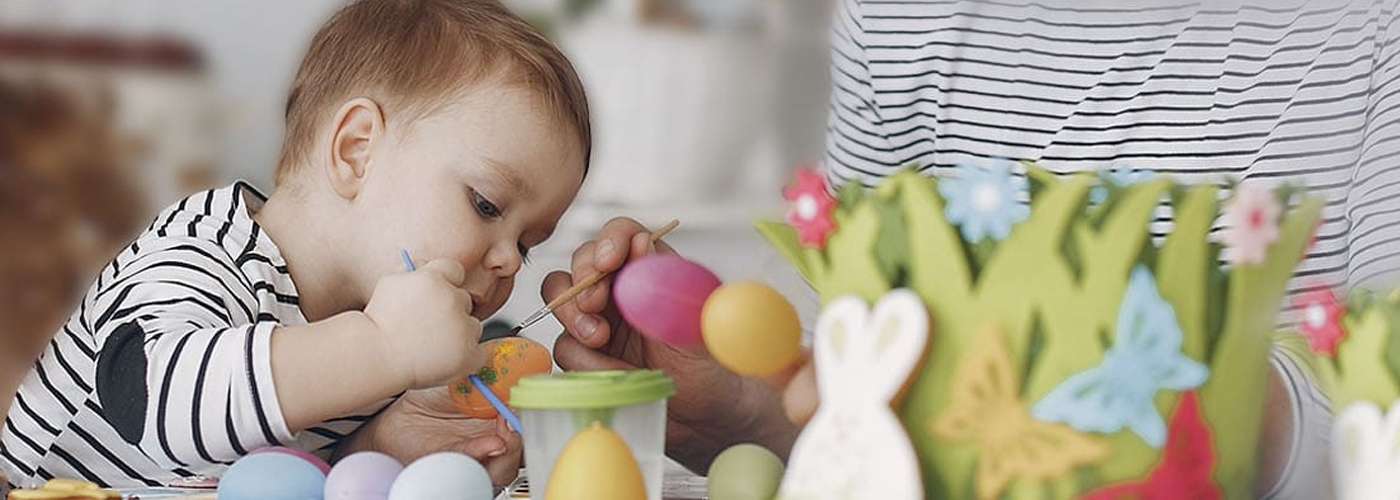Art for children from 0 to 3 years is a free and everyday experience, which allows them to express and develop their intelligence.
With this course you will learn to discover the potentials of children through non-verbal languages: Music and Visual Arts, valuing their ability to express themselves.
- 100% online training
- Without schedules, sign up and start now!
- Up to 45 days to complete the course
- IMI Certificate, accrediting 20 hours of training
MONTESSORI COURSES FOR THE 0-3 YEARS STAGE
MONTESSORI COURSES FOR THE 0-3 YEARS STAGE
Objectives
FUNDAMENTALS
ARTISTIC LANGUAGES WITH PEDAGOGICAL CRITERIA
EXPRESSIVE SITUATIONS
ARTISTIC TEACHING
Information
- Teaching team with great knowledge and international experience in Montessori classrooms.
- Didactic material: in our virtual campus you will find theoretical and practical content and videos.
Art is a very naturalized expressive language in school, which is often limited to isolated, unsystematic or technical experiences and says little about the expressive flow of the child from 0 to 3 years old.
In the Montessori approach the artistic experience focuses on the child’s ability to absorb any stimulus that he perceives in the prepared environment that is offered to him, addressing artistic expression from different aspects in each of the artistic languages.
Dr. Montessori is based on the American philosopher John Dewey and his publication Art as Experience (1934) in which he expresses the foundations of art as an everyday experience.
For Dewey, art is not an experience removed from day to day, alien to everyday life. He stated that art as “a quality of doing”, a concept that Dr. Montessori shared the concept of activity: we offer the child “motives for activity”, occasions for expression, situations or experiences through artistic parameters.
“For the young child, life is Art and Art is life,”says Murray Shafer, a Canadian music educator. It is that the child from 0 to 3 years old does not separate between the aesthetic experience and their eating, hygiene and sleep habits.
The Role of the Adult in this process is of fundamental importance, and just as we take care of the level of intervention of the adult in other areas of education, we do not teach art, but we design motifs of artistic expression and express ourselves together with the child.
The interests, needs, learning and sensitive periods of the child from 0 to 3 years are many and they occur in a very short time: movement, language development and the apprehension of objects through their senses. The expression proposals that we offer to him must respond to all these needs.
MODULE I
- Art as an early childhood experience.
- Art and the child from 0 to 3 years old.
- Artistic development.
MODULE II
- Methodological criteria for the Visual Arts and aspects that we work with children from 0 to 3 years old.
- Artistic installations.
MODULE III
- Methodological criteria for Musical Expression and aspects that we work with children from 0 to 3 years old: listening, producing, using the voice and expressive movement.
- Suggested repertoire for this age.
MODULE IV
- The prepared environment for Art: general criteria applied to both languages.
- Material design.
MODULE V
- Development of the 0-to-3 years old child’s writing
- Movement and Art
Both educators and family members are increasingly interested in the Montessori Method so that children develop their skills in a prepared environment, where they are the protagonists and mark their learning pace.
This course is aimed at:
- Teachers
- Professionals interested in early childhood education
- Homeschooler families (homeschooling)
- Educators for toy libraries
- Educators of children with Special Educational Needs
- Grandparents, families and any other profile professional with interest in these stages of development
- Psychologists, Speech Therapists, Pediatricians, Therapists, Neurologists
- Children’s educators
- Parents
- Babysitters
- Other educational environments
- Any professional interested in educational innovation
After completing and successfully completing the activities requested at the end of each module, the student will receive a Digital Certificate stating the completion and use of the course, awarded by the International Montessori Institute as the official training center for Montessori pedagogy.
Registering for the course is very simple, you must click on the “Take this Course” button that you will find under the course title.
Once this is done, the shopping cart will appear with the course you have chosen, and you must click on “Proceed to checkout”, or continue browsing our website to add new courses to your cart.
The next step will be to fill in the form with the billing information and choose the payment method: by card or Paypal, and click on “Place order”.
After the registration process, you will automatically receive a welcome email, which will include your access codes so that you can start the course. Remember that you have up to 30 days to complete the course.
Remember that after reading or viewing the content of the lessons you must press the “Completed” button, and thus proceed to the next topic.


